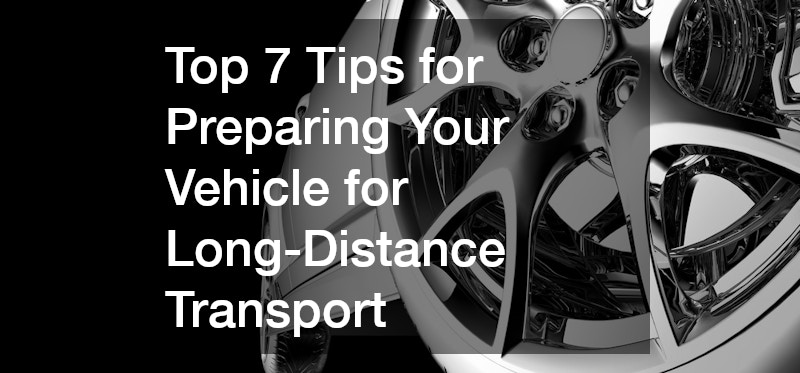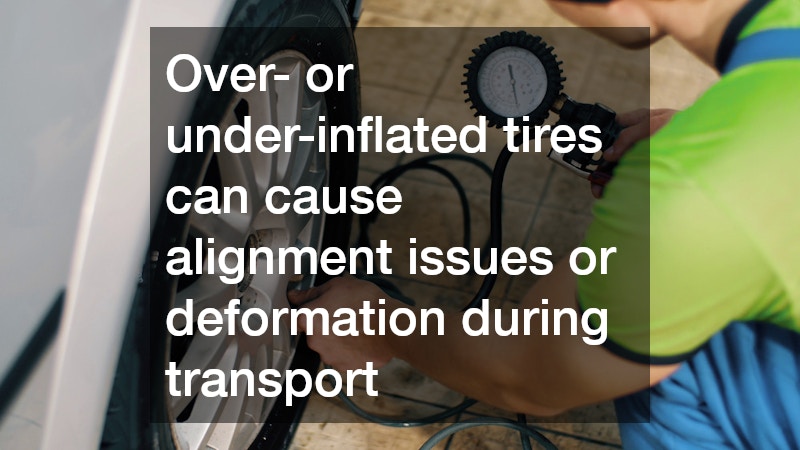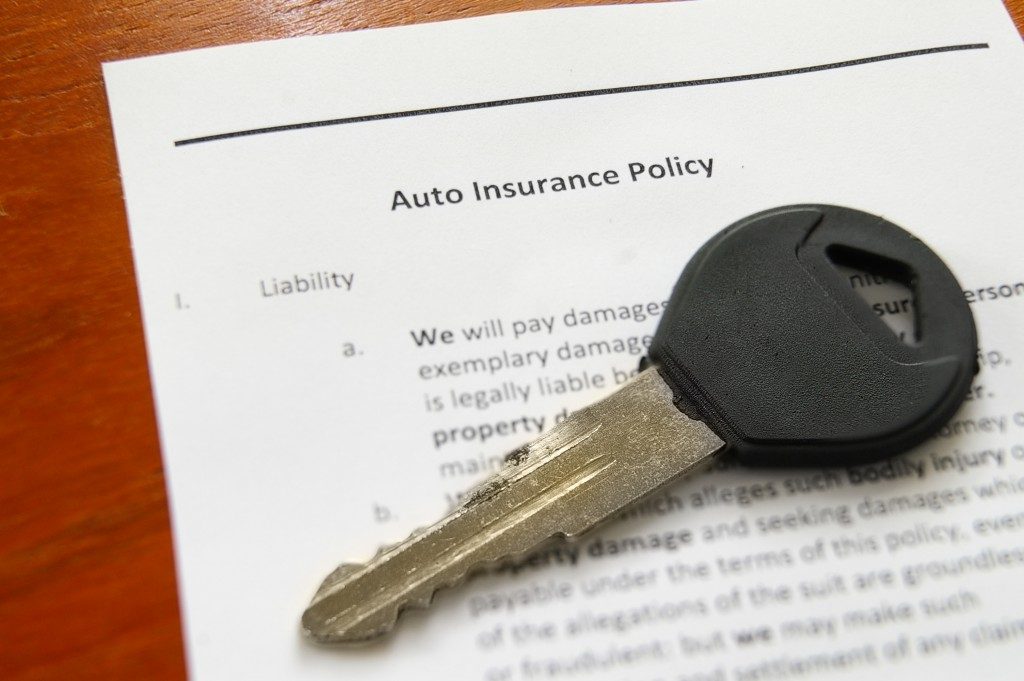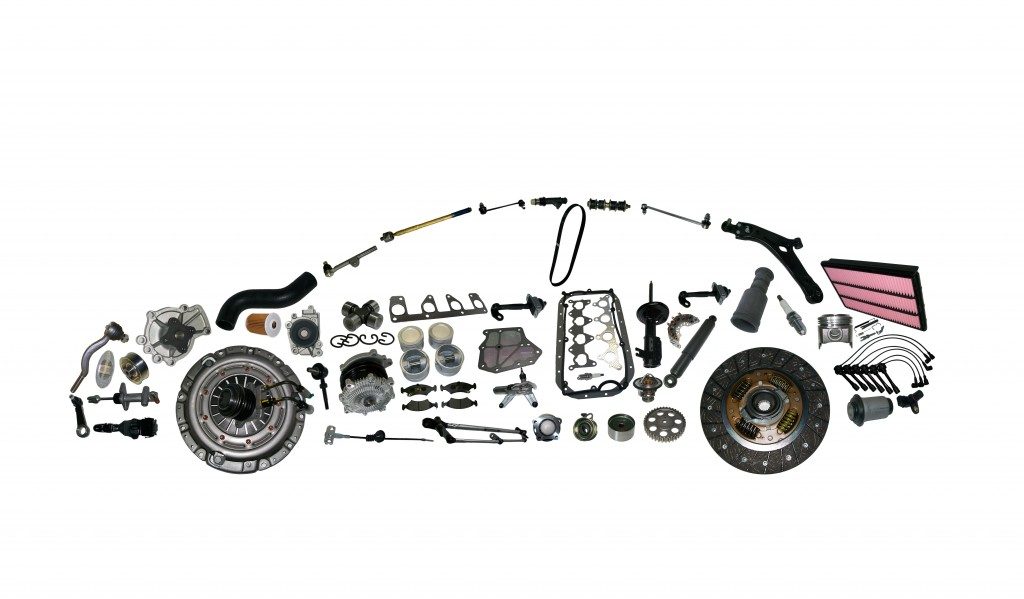Highlights:
-
Document your vehicle’s condition before pickup. Take clear, date-stamped photos of all sides and record your mileage to protect yourself in case of damage claims.
-
Remove all personal and loose items. Clear out valuables, aftermarket accessories, and heavy objects from the trunk to prevent damage and avoid insurance issues.
-
Check tires, fluids, and battery health. Proper tire pressure and fluid levels keep your vehicle stable during transport, and a charged battery ensures alarms or locks work if needed.
-
Disable alarms and provide spare keys. Prevent accidental alarm triggers and make sure the towing company has full access to the vehicle.
-
Fold in or remove external accessories. Protect mirrors, antennas, and spoilers by securing or removing them before loading.
-
Verify insurance coverage and complete all paperwork. Confirm that both your own policy and the towing company’s insurance cover long-distance vehicle transport.
-
Communicate clearly with your towing company. Confirm pickup details, discuss special vehicle instructions, and inspect the car upon delivery for a smooth, worry-free experience.

When you hire a towing company, you’re trusting professionals with one of your most valuable assets. Whether you’re moving across the country, purchasing a car from another state, or relocating for work, proper preparation can make the difference between a smooth delivery and unnecessary headaches.
Long-distance towing involves more than simply loading a vehicle onto a flatbed. Your car must be secure, inspected, and ready for the journey. By taking the right steps beforehand, you’ll help ensure your vehicle arrives safely, without damage or delays.
Here are the top seven expert tips for preparing your vehicle for long-distance transport — covering everything from mechanical readiness to documentation and communication with your towing provider.
1. Inspect Your Vehicle Thoroughly Before Pickup
Before your car is handed over to a towing company that handles long-distance vehicle transport, you should perform a detailed inspection. This step protects both you and the towing company by documenting the car’s condition before transport begins.
What to Do:
-
Clean the Exterior:
Wash your car to remove dirt, dust, and grime. A clean surface makes it easier to identify any existing scratches, dents, or paint chips. -
Document the Condition:
Take clear, date-stamped photos of your car from all angles. Focus on close-ups of existing blemishes or damage. Store these photos digitally in case you need them later. -
Check for Fluid Leaks:
Look under the car for any signs of oil, brake fluid, or coolant leaks. Leaks can worsen during a long haul and may cause mechanical issues. -
Record the Mileage:
Write down your odometer reading before pickup. While your vehicle shouldn’t accumulate miles during towing, this record verifies it wasn’t driven in transit.
A professional towing company that handles long-distance vehicle transport will likely perform its own inspection, but having your own documentation provides extra peace of mind.
2. Remove Personal Belongings and Loose Items
Your towing company is responsible for your vehicle — not the personal contents inside it. Items left in the car can shift during transport, causing damage or even voiding insurance coverage.
What to Do:
-
Clear Out the Interior:
Remove electronics, chargers, toll passes, CDs, and any valuables. Even seemingly harmless items like pens, umbrellas, or coins can roll around and scratch surfaces. -
Empty the Trunk:
If you’re using a towing service that handles long-distance vehicle transport, your car will be secured and possibly tilted during loading. Heavy objects in the trunk can move and damage panels or glass. -
Remove Aftermarket Accessories:
Take off detachable items like custom GPS mounts, roof racks, spoilers, or removable antennas. These parts are often not covered under standard towing insurance policies. -
Secure Permanent Fixtures:
If something cannot be removed (like a fixed bike rack), make sure it’s tightly fastened and won’t rattle loose during transit.
Even if your towing company allows a few small personal items, it’s always best to travel light. The less weight inside the vehicle, the safer and more efficient the transport.
3. Check Tire Pressure and Fluid Levels

Mechanical readiness matters. A vehicle that’s not in good working condition may create problems during loading, unloading, or even while strapped onto the truck.
What to Do:
-
Inflate Tires Properly:
Check tire pressure and adjust it according to manufacturer recommendations. Over- or under-inflated tires can cause alignment issues or deformation during transport. -
Top Off Fluids:
Make sure oil, coolant, brake fluid, and windshield washer fluid are all at safe levels. Even though the car won’t be driven, balanced fluid levels prevent damage from temperature changes or leaks. -
Fix Minor Mechanical Issues:
If your vehicle has trouble starting or rolling, inform the towing company in advance. Most long-distance towing professionals can accommodate non-running vehicles, but they need to bring the right equipment. -
Check for Battery Health:
Ensure your battery is charged and securely connected. If your car alarm activates accidentally during transport, you’ll want to make sure the towing team can disable it safely.
When your trusted long-distance vehicle towing company arrives, a well-maintained vehicle makes loading smoother and reduces the risk of damage.
4. Disable Alarms and Anti-Theft Devices
An active alarm system can quickly become a nuisance during long-distance towing. Since the vehicle may be moved or repositioned multiple times throughout the trip, alarms can trigger unexpectedly.
What to Do:
-
Turn Off Alarm Systems:
Disable your car alarm completely or provide clear written instructions to the towing company on how to deactivate it. -
Remove Smart Trackers Temporarily:
If your car has a tracking device or mobile app that alerts you to movement, disable notifications temporarily to avoid unnecessary alerts during transit. -
Provide Spare Keys:
Always give the towing company a set of keys that includes ignition, door, and trunk access. Don’t hand over your only set — keep a spare for yourself. -
Inform the Towing Company:
If your car has a complicated security system, tell your long-distance towing provider in advance. They may need to take precautions when loading and unloading the vehicle.
By disabling alarms, you help your towing company maintain efficient operations while protecting your vehicle from unnecessary stress or battery drain.
5. Secure or Fold In External Components
External accessories and fragile components are especially vulnerable during transport. Items like mirrors, spoilers, and antennas can be damaged by vibration, debris, or tight clearances on a tow truck.
What to Do:
-
Fold In Mirrors:
Most side mirrors can be folded inward to reduce width and minimize the risk of impact. -
Remove Antennas:
If your car has a detachable antenna, remove it before pickup. If it’s built-in, make sure it’s retracted. -
Retract Convertible Tops or Sunroofs:
Close and secure all openings tightly to prevent water, dust, or insects from getting inside. -
Check for Loose Parts:
Tighten or remove anything that might rattle loose — fog lights, decorative trims, spoilers, or mud flaps. -
Protect Delicate Finishes:
If you’re shipping a luxury or classic car, ask your trusted long-distance vehicle towing company about using soft covers or protective wrapping.
A few minutes of preparation here can prevent hundreds of dollars in cosmetic damage once the journey is complete.
6. Verify Insurance and Gather Necessary Documentation
Before handing over your vehicle, confirm all paperwork and coverage details with your towing company. Understanding your rights and responsibilities ensures that you’re protected in the event of an incident.
What to Do:
-
Check the Company’s Insurance Coverage:
Ask your towing provider to show proof of cargo insurance and liability coverage. Reputable towing companies that handle long-distance vehicle transport are always transparent about this. -
Review Your Own Policy:
Contact your auto insurer to see if your existing coverage extends to vehicle towing or transport. You might have protection for damage during loading or unloading. -
Prepare the Required Documents:
Gather your car registration, proof of insurance, and photo ID. Some towing companies require copies before pickup. -
Sign the Bill of Lading Carefully:
This document serves as your official contract and inspection record. Review it thoroughly before signing and make sure all existing vehicle conditions are accurately listed. -
Get a Copy of Everything:
Keep digital and printed copies of all paperwork until your car is delivered safely.
Having documentation in order eliminates confusion and strengthens your position should any disputes arise.
7. Communicate Clearly with the Towing Company
Good communication is key to a successful transport. Whether you’re moving your vehicle across the state or across the country, staying in touch with your towing provider ensures a smooth experience from start to finish.
What to Do:
-
Confirm Pickup and Delivery Details:
Double-check addresses, contact numbers, and scheduled times. Delays can often be avoided with proper coordination. -
Provide Special Instructions:
If your vehicle has quirks — such as a low front bumper, modified suspension, or parking brake issues — tell your towing company for long-distance vehicle transport ahead of time. -
Ask About Tracking:
Many professional transporters now offer GPS tracking or progress updates. Knowing where your car is provides reassurance and transparency. -
Stay Available for Updates:
Keep your phone handy and respond promptly if your towing company calls about delays or route changes. -
Inspect Upon Delivery:
When your car arrives, review its condition carefully before signing the final delivery form. Compare it with your original photos to confirm it arrived exactly as it left.
Effective communication builds trust and helps prevent misunderstandings that can cause frustration for both you and the towing company.
Bonus Tip: Choose the Right Long-Distance Towing Partner
All the preparation in the world won’t matter if you don’t work with the right professionals. When choosing a towing company specializing in long-distance transport, look beyond price alone.
What to Look For:
-
Experience with Long-Distance Routes:
A reputable towing company understands route planning, vehicle security, and compliance with transport regulations. -
Proper Licensing and Credentials:
Ensure the company is fully licensed, bonded, and insured to operate across state lines. -
Customer Reviews and Testimonials:
Research online ratings, Better Business Bureau listings, and customer stories. A pattern of satisfied clients is a strong indicator of reliability. -
Equipment and Fleet Quality:
Ask about the type of tow trucks or flatbeds used. Modern, well-maintained equipment reduces the risk of damage and delays. -
Transparent Pricing:
Get a written estimate before you agree to the service. Be wary of vague quotes or hidden fees.
A professional long-distance towing company will be upfront about its services, communicate clearly, and prioritize the safety of your vehicle every mile of the way.
Final Thoughts
Preparing your car for long-distance transport doesn’t have to be complicated — it just takes attention to detail and proactive planning. By following these seven tips, you’re ensuring a stress-free experience for yourself and the towing professionals entrusted with your vehicle.
From inspecting and documenting your car’s condition to verifying insurance and maintaining clear communication, each step reduces risk and increases peace of mind.
A trusted towing company that handles long-distance vehicle transport does more than just move cars; it safeguards your investment and delivers it exactly where it needs to be, in the same condition it left.
Whether you’re relocating, buying a vehicle out of state, or sending a car to a family member, preparation is key. Treat your car transport as seriously as you would a major shipment — because that’s exactly what it is.
With the right preparation and the right towing partner, your long-distance vehicle transport experience can be safe, efficient, and completely worry-free.


